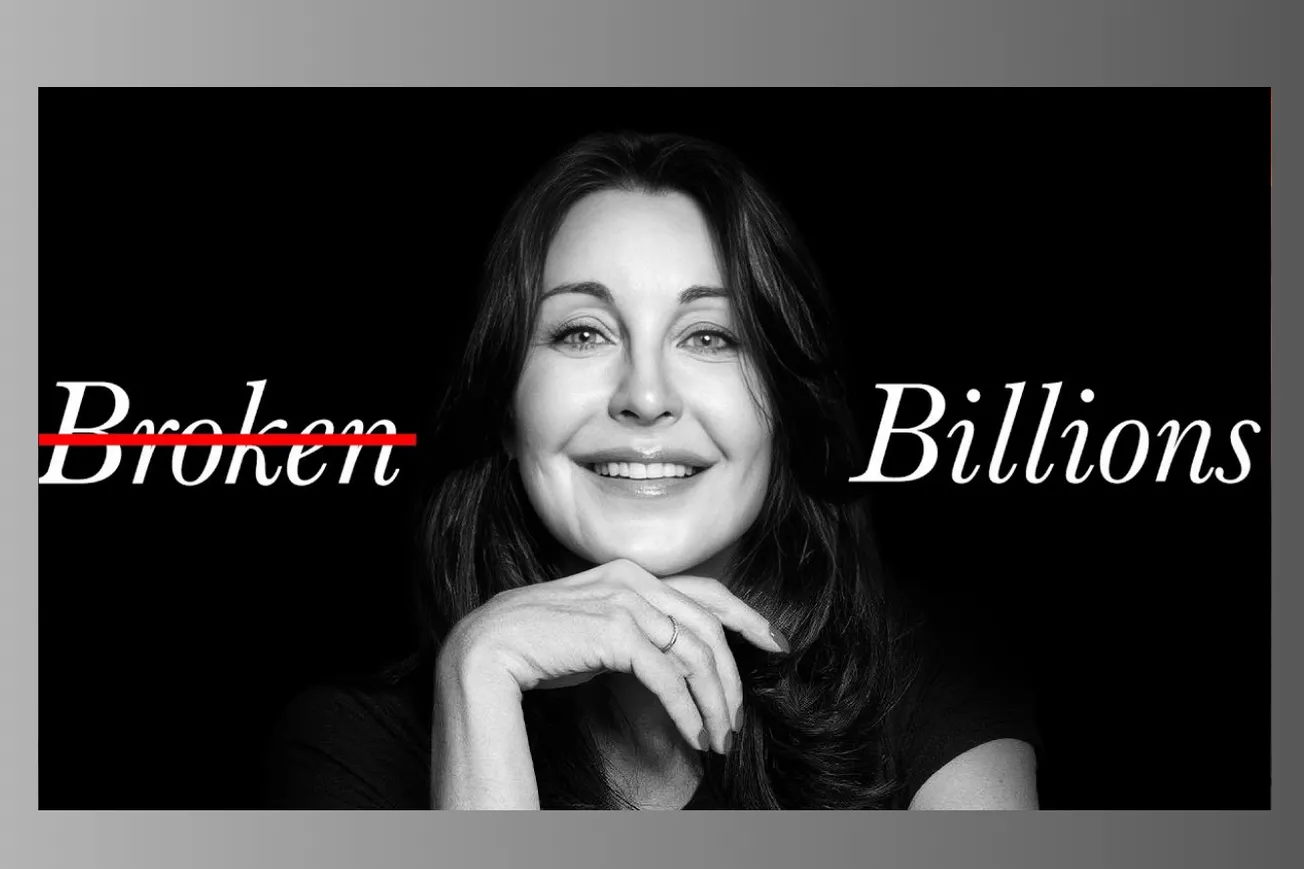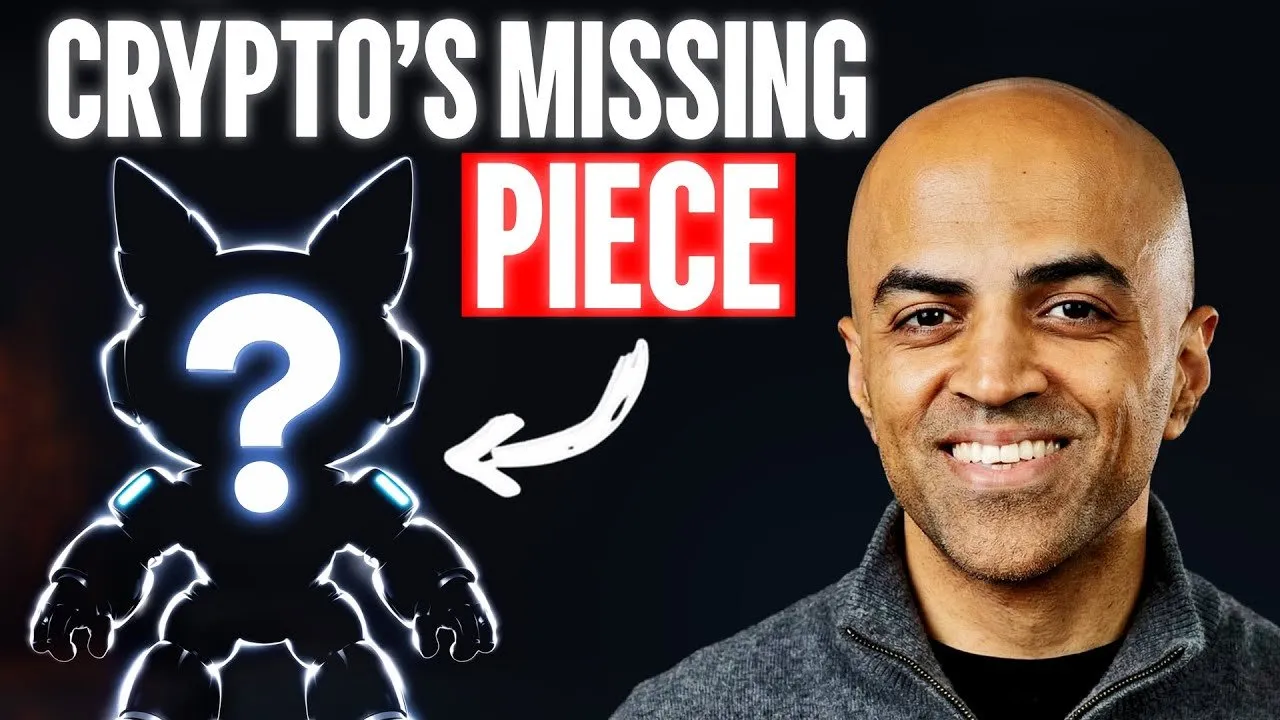Table of Contents
Tamara Mellon transformed Jimmy Choo from a small cobbler shop into a global luxury empire, only to lose control through private equity deals that prioritized short-term profits over long-term brand building.
Key Takeaways
- Always retain majority ownership and control of your company - giving up even 1% of controlling interest can lead to devastating consequences for founders
- Being the customer you're designing for provides invaluable insights into preferences, shopping habits, and marketing channels that competitors can't replicate
- Strategic location placement can "ambush customers" by positioning stores where target demographics naturally congregate rather than in cheaper, inconvenient locations
- Media and celebrity influence create exponential marketing value - one Sex and the City mention generated more awareness than expensive advertising campaigns
- Childhood trauma can become a powerful driving force for success when channeled into determination for financial independence and breaking destructive family cycles
- Private equity partnerships often prioritize short-term EBITDA optimization over long-term brand health, creating fundamental conflicts with founder vision
- Cost control obsession from professional partners can destroy luxury brand positioning by forcing cheaper materials and reduced quality standards
- Building authentic relationships with influencers, stylists, and media creates sustainable competitive advantages that can't be easily replicated by competitors
- Starting profitable from day one with minimal capital proves business model viability before seeking external investment or partnerships
Timeline Overview
- 1996-1997 — Tamara gets fired from Vogue, goes to rehab, convinces Jimmy Choo to partner on manufacturing venture with £150,000 from her father
- 1998-2000 — First store opens on Motcomb Street London, Sex and the City mentions Jimmy Choo 34 times, rapid profitability and celebrity adoption
- 2001-2004 — Jimmy Choo sells 50% to Phoenix Equity Partners and exits, Tamara loses control with 51% private equity ownership, father dies unexpectedly
- 2004-2007 — Lion Capital acquires company for £101 million, implements cost-cutting measures that compromise quality and brand positioning
- 2007-2011 — Towerbrook Capital Partners buys for £185 million, continues private equity playbook of margin optimization over brand investment
- 2011-2014 — Tamara exits company she founded, Labelux acquires for £525 million, later IPOs at £546 million valuation
- 2014-2017 — Mother sues Tamara unsuccessfully, divorce from drug-addicted husband, Michael Kors acquires Jimmy Choo for $1.2 billion
From Rock Bottom to Breakthrough: The Power of Necessity
- Tamara's transformation began at her lowest point when she was fired from Vogue after arriving "two hours late, having been up all night consuming prodigious quantities of cocaine and vodka," forcing her to confront the reality that she needed a complete life change to avoid remaining "unemployed, penniless, and living in her parents' basement."
- The rehabilitation process revealed fundamental insights about her potential when therapists tried to diminish her ambitions, telling her to "perhaps just want to take a job in a shoe store" instead of starting a luxury brand, prompting her defiant response: "No fucking way" and reinforcing her determination to think big rather than accept mediocrity.
- Her childhood trauma created an internal drive for financial independence that went beyond typical entrepreneurial motivation - she described "a demonic drive for the financial security I hope would keep me out of her clutches" referring to her psychologically abusive alcoholic mother who had tormented her since early childhood.
- The combination of hitting rock bottom professionally while simultaneously getting clean from drugs created the perfect conditions for focused intensity, as she threw herself into "trying to win over Jimmy Choo" with "nothing to lose and everything to gain" during a three-month daily persuasion campaign.
- Getting fired proved to be "the huge favor Anna was doing me" by setting "forces in motion that in time would lead to success far beyond anything I could have ever imagined," demonstrating how apparent disasters often create the catalyst for breakthrough achievements when leveraged correctly.
- The rehabilitation experience taught her that external expectations and conventional wisdom often limit potential, leading to her philosophy of following instincts rather than being "blown back and forth by the winds of conflicting opinions" throughout her entrepreneurial journey.
Customer-First Design: Building for People Like Yourself
- Tamara's fundamental advantage came from being "the customer that I wanted to reach" which gave her intuitive understanding of preferences, shopping behaviors, and lifestyle patterns that market research couldn't replicate, allowing her to design products and experiences that resonated authentically with her target demographic.
- Her Vogue background provided crucial insights into the power of media placement and celebrity influence, having witnessed how "whenever we were planning a shoot at Vogue, we'd go down to Jimmy's hideous little workshop" and afterward "even more wealthy ladies would find their way to his shop" based purely on fashion credits.
- The inspiration process reflected her customer knowledge perfectly - she would "go down to the flea market and try to pick out pieces that could inspire designs" then combine elements she found emotionally compelling, trusting that "the things that struck me and that I related to emotionally, other women related to as well."
- Manufacturing trade shows revealed opportunities invisible to traditional shoe companies because of her fashion industry insider knowledge, discovering "pavilions that had all these materials that people weren't putting on shoes at the time" including feathers, flowers, studs, glass beads, and glitter fabric that became Jimmy Choo signatures.
- Her approach mirrored successful filmmakers like Quentin Tarantino who said "I'm the audience" after being obsessed with movies for decades before making his own, demonstrating how deep personal passion combined with industry expertise creates authentic products that resonate with similar customers.
- The customer-first philosophy extended beyond design to every business decision, from store location ("convenient and near where the ladies like me do their shopping") to marketing strategy (targeting celebrities, stylists, and media that influenced her demographic) to pricing and quality standards that matched her personal expectations.
Strategic Location and Customer Ambushing
- Tamara's store placement strategy directly contradicted conventional retail wisdom by prioritizing customer convenience over cost savings, noting that competitor Manolo Blahnik was "20 minutes from the nearest tube station" making it impossible for working women to "pop over at lunchtime," while she chose expensive Motcomb Street location to be "in the hot burning center."
- The "ambush customers" philosophy, borrowed from Steve Jobs' Apple Store strategy, recognized that people "didn't have to gamble with 20 minutes of their time, they only had to gamble with 20 footsteps of their time," making spontaneous discovery and purchase far more likely than destination shopping.
- Jobs' retail insight proved directly applicable to luxury fashion: "We may not be able to get them to drive 10 miles to check out our products, but we can get them to walk 10 feet. If they're passing by, they will drop in out of curiosity," creating serendipitous encounters that built brand awareness and sales simultaneously.
- The Motcomb Street location proved strategically perfect when the Sex and the City creator "had been in London and stopped by the store on Motcomb Street and fell in love with the product," leading to 34 show mentions that transformed Jimmy Choo into a household name entirely through organic discovery rather than paid placement.
- Despite paying premium rent, the tiny store format remained profitable because high foot traffic and customer quality compensated for location costs - their first year generated £250,000 in sales with only £15,000 in rent and minimal staffing, proving that strategic positioning creates exponential returns on real estate investment.
- The ambush strategy created sustainable competitive advantages because competitor locations couldn't be easily changed, giving Jimmy Choo permanent accessibility benefits that reinforced their brand positioning as more customer-friendly than established luxury competitors.
Media Mastery and Celebrity Influence
- Tamara's Vogue experience revealed the transformative power of media placement when she observed how "magazines had always put beautiful models on their cover, but over time they realized that featuring an actress instead would send their newsstand sales through the roof," leading her to prioritize celebrity over model endorsements for Jimmy Choo.
- The gifting strategy evolved from simple celebrity targeting to systematic relationship building with stylists who "work for multiple clients" meaning "contact with a single stylist gave us many more shots at scoring a win" compared to individual celebrity outreach, creating scalable influence networks.
- Oscar night became their annual Super Bowl equivalent where Tamara would be "up all night on the phone trying to orchestrate the gifting of shoes to all the right women," with Kate Winslet's Titanic nomination mention creating such powerful sales impact that award show marketing became a core strategy.
- The Sex and the City breakthrough demonstrated how authentic product placement outperformed paid advertising: "Manufacturers of everything pay fortunes for product placement in movies and TV. We got this huge call out entirely for free" because the creator genuinely discovered and loved the product during natural shopping.
- Understanding media cycles and celebrity culture allowed Jimmy Choo to maximize each placement opportunity, recognizing that "a magazine feature could reach hundreds of thousands of potential customers for a fashion brand" while building aspirational brand associations that traditional advertising couldn't achieve.
- The strategy created compound effects where media mentions led to more celebrity adoption which generated more media coverage, establishing Jimmy Choo as a cultural symbol rather than just a product, demonstrating how authentic influence marketing creates self-reinforcing brand momentum.
The Father-Daughter Partnership: Mentorship and Support
- Tamara's father provided both financial backing and crucial business education through what she called "a sort of kitchen MBA" with "steady drips of how to think about business over the dinner table," combining practical startup funding with ongoing strategic guidance that formal education couldn't replicate.
- His entrepreneurial success with Vidal Sassoon, which sold for £72 million, gave him both credibility and resources to support his daughter's venture while providing "semi-retirement" availability to serve as "the elder statesman and spirit guide in my new venture" during the critical startup phase.
- The father-daughter relationship deepened through their business collaboration: "I felt a bond growing between my father and me that had never been allowed to flourish during my childhood," showing how shared entrepreneurial challenges can heal family relationships and create meaningful connections beyond traditional parent-child dynamics.
- His warning to "not let the accountants run your business" proved prophetic as Jimmy Choo's later private equity ownership prioritized financial metrics over brand building, demonstrating how experienced entrepreneurs can anticipate dangers that seem abstract to newcomers but become devastatingly real over time.
- The partnership provided emotional stability during Tamara's recovery and business building: "He was my dad and I loved him, but he was also my mentor and my business partner. He was the one solid rock I'd ever known in my life," combining family support with professional guidance during her most vulnerable period.
- His unexpected death in 2004 left Tamara without her primary adviser and co-founder exactly when she needed guidance most for navigating private equity relationships, illustrating how founder isolation can make them vulnerable to unfavorable partnerships and decisions they might avoid with trusted counsel.
The Private Equity Trap: Losing Control Incrementally
- The fatal mistake began when Jimmy Choo's departure created an opportunity for Phoenix Equity Partners to acquire his 50% stake, with their demand for 51% control initially rejected by Tamara's father who "was never one to surrender control of anything," but ultimately accepted due to Tamara's desperation to remove her difficult partner.
- That single percentage point shift created immediate operational conflicts: "The fact that someone else would now have the final say in how we ran the company was going to take some getting used to," transforming Tamara from company controller to minority stakeholder whose vision could be overruled by financial partners.
- Private equity's short-term focus became apparent through decisions like canceling the British Academy Film and Television dinner sponsorship that would cost £200,000, with CEO Robert viewing it as EBITDA reduction rather than brand investment, demonstrating the fundamental conflict between founder long-term thinking and private equity exit timelines.
- The quality degradation began systematically as "owners became greedy and began pushing us to improve our margins" by mandating that "we could no longer use leather that cost more than €30 a square meter," forcing cheaper materials that compromised the luxury positioning that built the brand's value.
- Each subsequent sale (Phoenix to Lion Capital to Towerbrook to Labelux to IPO to Michael Kors) created additional disruption as "facilitating due diligence had become a tiresome second job" while competitors "could focus on the real work of creating and maintaining quality and innovation" without constant ownership transitions.
- The ultimate irony emerged when Tamara realized "I was being treated like an employee at the company I had founded," leading to her 2011 departure exactly when the brand needed founder vision most, proving that control retention isn't just about ownership percentages but about preserving the creative and strategic autonomy that creates brand value.
The Cost of Success: Personal Sacrifices and Family Dysfunction
- Tamara's marriage to Matthew Mellon illustrated how drug addiction destroys families regardless of wealth or status, with Matthew being "the great-great-great grandson of Judge Thomas Melon" yet becoming a "cokehead doing crack" who would "party until dawn" on their wedding night while she "went up to my room alone."
- The additional stress of supporting a drug-addicted spouse while building a company and fighting private equity partners created overwhelming pressure: "I was in the office every day working hard and Matthew had nothing but free time on his hands and I'd come home to find him freebasing in the kitchen."
- Her mother's lawsuit during this period added legal and emotional burdens when she should have been celebrating her daughter's success, demonstrating how "instead of being proud of the woman that your daughter has become, you fucking sue her for more money from a company you didn't even build."
- The combination of business stress and personal trauma manifested in physical symptoms: "I've been having massive anxiety attacks and night sweats. I couldn't sleep. I was so distracted that it would take me hours to dress. I couldn't make decisions and I couldn't stand to be with other people."
- Breaking the cycle became her ultimate achievement when she described watching her daughter's development: "I enjoy the pleasure of watching my daughter's transformation into a smart, beautiful, and resourceful young woman" while feeling "truly sorry for my mother that she denied herself the pleasure of this kind of relationship."
- The personal cost of entrepreneurial success extended beyond financial metrics to include sacrifice of relationships, health, and emotional well-being, but ultimately enabled her to provide her daughter with the nurturing childhood she never experienced, transforming generational trauma into positive change.
Conclusion: The Price of Giving Up Control
Tamara Mellon's journey from rock bottom to billion-dollar brand creator reveals both the extraordinary potential of founder-led companies and the devastating consequences of losing control to financial partners. Her story demonstrates that authentic customer understanding, strategic positioning, and media mastery can build global luxury brands from minimal capital, but also warns that giving up even 1% of controlling interest can ultimately destroy everything a founder works to create. The contrast between her missionary passion for product excellence and her partners' mercenary focus on financial metrics illustrates why retention of control isn't just about ownership - it's about preserving the vision and values that create lasting brand value.
Practical Implications
- Never give up majority control - Retain at least 51% ownership regardless of partner demands or short-term pressures to ensure founder vision prevails in critical decisions
- Be your own customer - Design for yourself when you deeply understand and represent your target demographic, trusting personal taste over market research
- Ambush customers strategically - Pay premium rents for locations where customers naturally congregate rather than choosing cheaper, inconvenient alternatives
- Build authentic media relationships - Invest in genuine product placement and celebrity relationships rather than relying solely on paid advertising campaigns
- Start profitable from day one - Prove business model viability with minimal capital before seeking external investment that requires giving up control
- Choose long-term partners carefully - Ensure alignment on brand vision and timeline rather than accepting the first available capital source
- Document your story - Share experiences to help future entrepreneurs avoid similar mistakes and make better strategic decisions
- Break destructive family cycles - Channel childhood trauma into positive motivation while ensuring you don't perpetuate harmful patterns with your own children
- Maintain founder authority - Resist pressure to compromise on quality or brand positioning that built your initial success, even when facing financial pressure from partners





